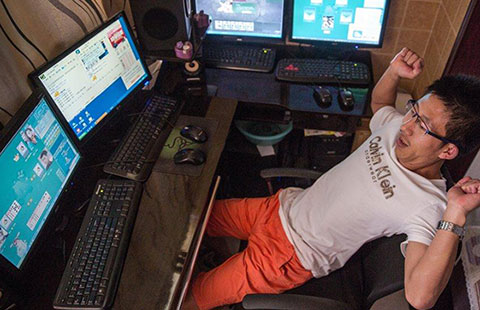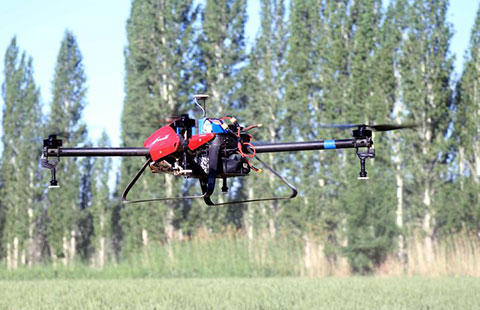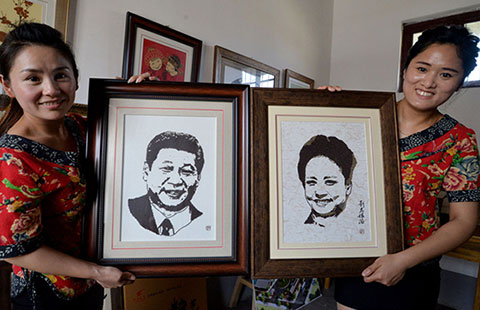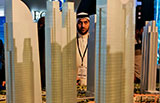Indoor golf driving boom in the industry
By Emma Gongzales (China Daily) Updated: 2015-06-15 07:18After the ball hits the screen, the information collected by sensors is analyzed for speed, angle, distance and trajectory. The golfer can even choose between different wind velocities and weather conditions to make it mirror real life.
"Although there are controversies about simulator technologies, advocates believe that the best tracking technologies are now sophisticated enough to replicate indoors the full range of game situations," a report, entitled Golf 2020 Vision, published by the global banking group HSBC Holdings Plc, revealed.
Software for simulator technology is developing rapidly and this will help indoor golf expand in the years ahead. Already the Beijing-based company DigitGolf has become the first Chinese firm to create a software system, competing with products from South Korea and the US.
DigitGolf has only been in business for eight years, but now employs 50 staff and sells about 300 systems a year. On average, the price for a golf simulator is $15,000, including delivery, installation fees and a software training.
The company has reported average annual revenue growth of 50 percent in the last three years, without revealing detailed figures. This year's sales are expected to reflect modest growth because of the negative impact that the government's austerity campaign is having on the sport.
"The government's crackdown on golf has meant that fewer officials are playing the sport now," Li Zhongzheng, general manager at DigitGolf, said.
"Before, a lot of our customers were State-owned companies that bought packages for their employees. But as the government introduced stricter measures to promote austerity, we have seen a decline in sales in that segment."
Ironically, the company will still be able to post solid numbers this year after the government decided to introduce indoor golf technology into schools and universities across China as part of a new sports program.
"A growing number of parents are also investing in golf lessons as they believe it could improve their children's future careers by giving them a sense of Western traditions," David-Experton, of Daxue Consulting, said.
This will also help indoor golf expand and drive profit in the sector. "In Beijing, we estimate that there are between 20 and 30 indoor golf simulation centers, where people can play a version of the game," Li, of DigitGolf, said. "But this year we calculate the number will sharply rise to 100, and that will help us grow further."
Part of the reason indoor golf is on the rise is because it is regarded as a status symbol in China and a good way to build business contacts.
"Indoor golf is seen by a lot of business people as a good communication platform," Kong, who plays at CEG indoor golf simulation center, said. "They bring clients or business partners to discuss deals and have a good time. It is a relaxing environment where they can play and have a drink."
The virtual sport has also escaped the controversies that have surrounded the outdoor game. To many, golf is considered a rich man's sport and a waste of natural resources, such as water which is sprinkled on the fairways and greens.
- Resurging interests in cycling
- Cycling fans put sector on the road to recovery
- Indoor golf driving boom in the industry
- Value of stocks rises above $10t, margin debt reaches new record
- IMF team to assess yuan
- Top 10 luxury houses in the world
- Alibaba announces new deals in television, movie industries
- VW Finance China partners 5 major dealer groups

















